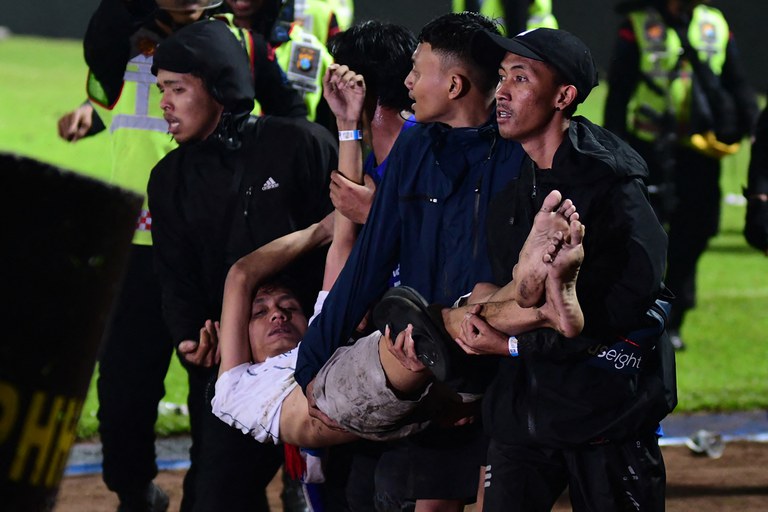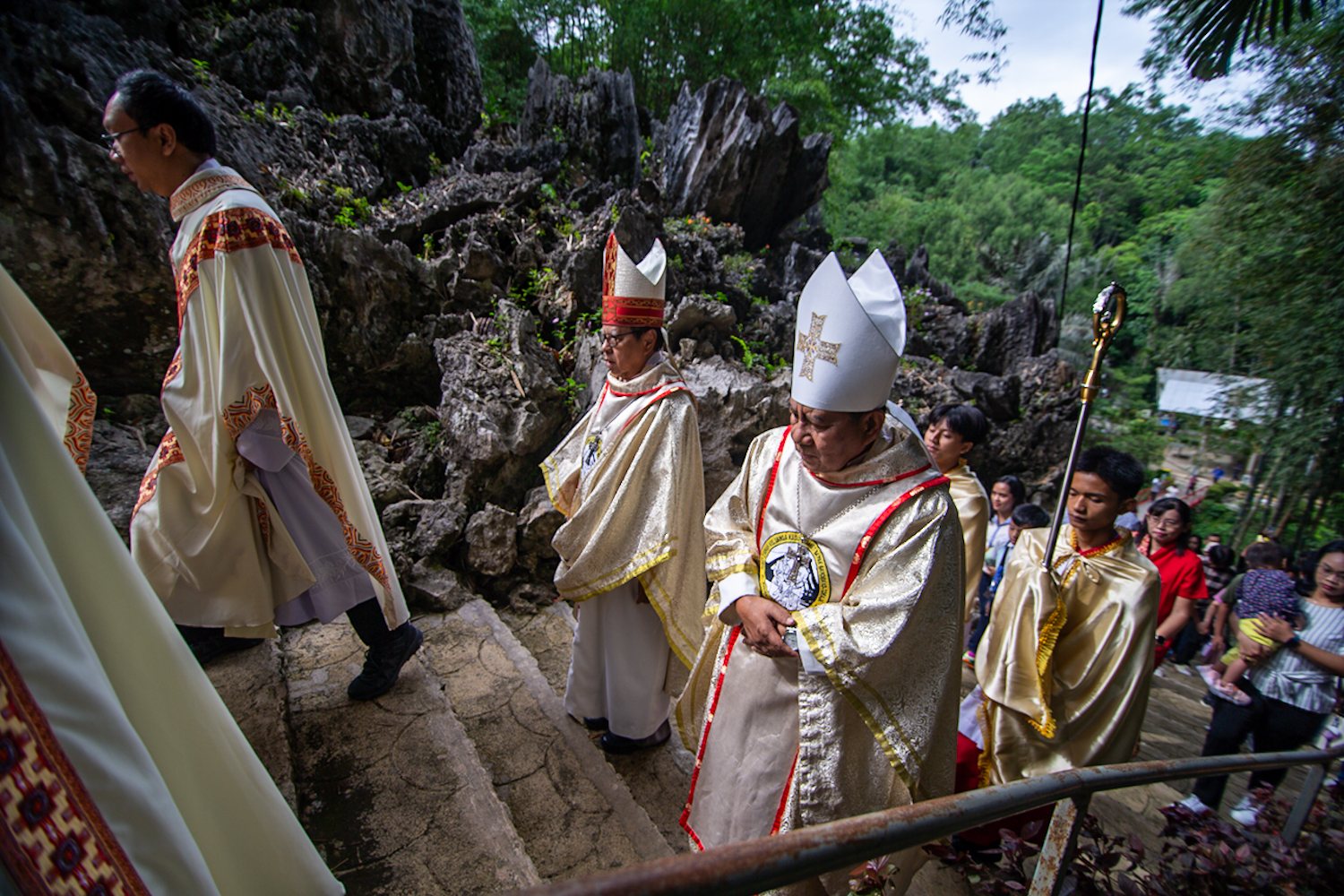Joaquim Magalhães de Castro
Following the disaster at Malang Stadium, in the eastern part of the island of Java, which left 127 dead (including a 5-year-old child) and more than 300 injured, the Indonesian Catholic Church immediately came to offer material support, give spiritual comfort to the victims’ families and to demand that the due responsibilities be established as soon as possible.
The tragedy would also be remembered by Pope Francis at the end of the traditional Angelus prayer delivered in St. Peter’s Square. The Supreme Pontiff said: “I also pray for those who lost their lives and were injured in the clashes that broke out after a football match in Malang, Indonesia.”
According to in-person testimonies, Arema FC fans invaded the pitch after their team’s defeat by rivals Persebaya Surabaya. The police force reacted by using batons to try and get fans back to the stands. Meanwhile, someone ordered the stadium gates to be closed and a large amount of tear gas was thrown into the air, which caused panic in the now trapped crowd. The result was what was seen on television screens: dozens of young bodies trampled and suffocated to death, stretched out on the mosaics of a room, waiting to be identified by family members.
Joko Widodo, the Indonesian president, ordered an immediate review of the “security plan for football matches,” and demanded “an accurate assessment of the incident,” having meanwhile detained some elements of the police whose actions were clearly disproportionate to the event and irresponsible.
The leader of the Catholic community of Malang, Carmelite Bishop Henricus Pidyarto Gunawan expressed his condolences on behalf of the Catholic Church, entrusting the bereaved families “to the merciful God,” while Father Hans Jeharut, executive secretary of the Laity Commission of the Indonesian Episcopal Conference, called on the authorities to “carry out an impartial and thorough investigation” that would seat those responsible in the dock at court.
Speaking to Agenzia Fides, two clerics from Malang did not hesitate to publicly express their position on the matter. Tedjo Soekarno, a diocesan priest of Malang committed to interreligious dialogue, confessed that he was “seriously concerned” by the horror witnessed, with the tragedy being proof that the work for interreligious dialogue in East Java is still insufficient and will have to be intensified. “It is urgent to create harmony at all levels of society, to avoid all types of violence,” he stressed. In turn, Father Eko Aldianto O.Carm, executive secretary of the Justice and Peace, Pastoral Care for Migrants Commission, expressed astonishment at such an unexpected tragedy and said he was speechless in the face of what he calls the “absurd polarization” around a sporting competition. He asked for prayers for the families involved and a deep reflection on what to do so that all sports competitions are guided by “mutual respect and fun,” and never an excuse for “conflicts or harbingers of violence.”
Such a stance on the part of members of the Catholic Church is not surprising, as it is part of the spirit of the appeal launched in February 2016 by the archbishop of Ende, Vincentius Sensi Potokota. The prelate then asked local Catholics for “unity and involvement in politics,” in order to make a greater impact on public life. “We must work together to achieve the common good,” said Potokota before an audience of two hundred politicians and academics from different Catholic groups and institutions, gathered there in a Commission of Laity.
As was recalled at the time by Jacobus Kristiadi, a political analyst and senior fellow at the Center for Strategic International Studies, that it was the duty of these Catholic leaders to work together to help form and guide other Catholic groups. For it was this serious gap in the past that had contributed to many faithful getting involved in illegal practices and acts of active corruption. At the time, the province of Nusa Tenggara Oriental, with 80% of Catholics, was the most corrupt in Indonesia.
Archbishop Vincentius Sensi Potokota recalled that the Catholic Church had in the recent past several “respected leaders and national heroes committed to the spirit of Catholicism,” presenting as examples Father Inácio Joseph Kasimo, one of the founders of the Partai Katolic (political party, defunct in 1970) and Fransiskus Xaverius Seda, a respected former cabinet member during the Suharto era.
Known for his activism, Archbishop Vincentius Sensi Potokota has stood out in the fight against the rampant mining and deforestation campaigns underway in the province of Nusa Tengarra Oriental (where Flores Island is located), causing serious and irreversible environmental damage.
(Photo credit: Joaquim Magalhães de Castro)


 Follow
Follow


